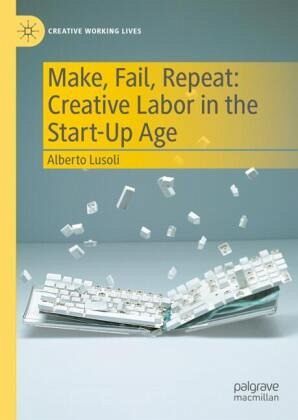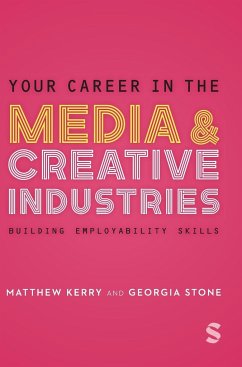
Make, Fail, Repeat: Creative Labor in the Start-Up Age

PAYBACK Punkte
42 °P sammeln!
This book examines how the concept of 'Start-up' has transcended its original acceptation as a synonym for an early-stage, hi-tech company, to become a historically specific way of knowing and acting in the world.'Start-up' is everywhere. The term has been employed since the 1970s to indicate any company with a limited operating history and in a phase of market discovery. In the 1990s, the term gained a more preciseconnotation, one connected to the kind of experimental, technology-based, and venture-backed businessesthat became the most visible embodiment of the New Economy techno-utopianism. ...
This book examines how the concept of 'Start-up' has transcended its original acceptation as a synonym for an early-stage, hi-tech company, to become a historically specific way of knowing and acting in the world.'Start-up' is everywhere. The term has been employed since the 1970s to indicate any company with a limited operating history and in a phase of market discovery. In the 1990s, the term gained a more preciseconnotation, one connected to the kind of experimental, technology-based, and venture-backed businessesthat became the most visible embodiment of the New Economy techno-utopianism. Today, the term is widely known and used beyond managerial circles, so much so that it has become a subject of TV shows
such as Shark Tank, MTV s Dropout, and HBO s irreverent series Silicon Valley. 'Start-up' is no longer just an economic and managerial concept but, the book argues, also a cultural phenomenon that is reshaping the way we conceive work in the 21st century. It does this byfurthering the idea that withdrawal from traditional disciplinary regimes such as formal education and wage labor is a necessary step on the pathtoward professional realization and personal freedom. But what happens when one decides to leave the safe harbor of regular employment and set sail on the tumultuous waters of independent work? The book addresses this question through a 22-month ethnographic investigation of the Vancouver new media and digital industries. Through interviews with creative practitioners and participation in informal gatheringsfor tech workers, the book provides a compelling perspective on creative work in the start-up age.
such as Shark Tank, MTV s Dropout, and HBO s irreverent series Silicon Valley. 'Start-up' is no longer just an economic and managerial concept but, the book argues, also a cultural phenomenon that is reshaping the way we conceive work in the 21st century. It does this byfurthering the idea that withdrawal from traditional disciplinary regimes such as formal education and wage labor is a necessary step on the pathtoward professional realization and personal freedom. But what happens when one decides to leave the safe harbor of regular employment and set sail on the tumultuous waters of independent work? The book addresses this question through a 22-month ethnographic investigation of the Vancouver new media and digital industries. Through interviews with creative practitioners and participation in informal gatheringsfor tech workers, the book provides a compelling perspective on creative work in the start-up age.












